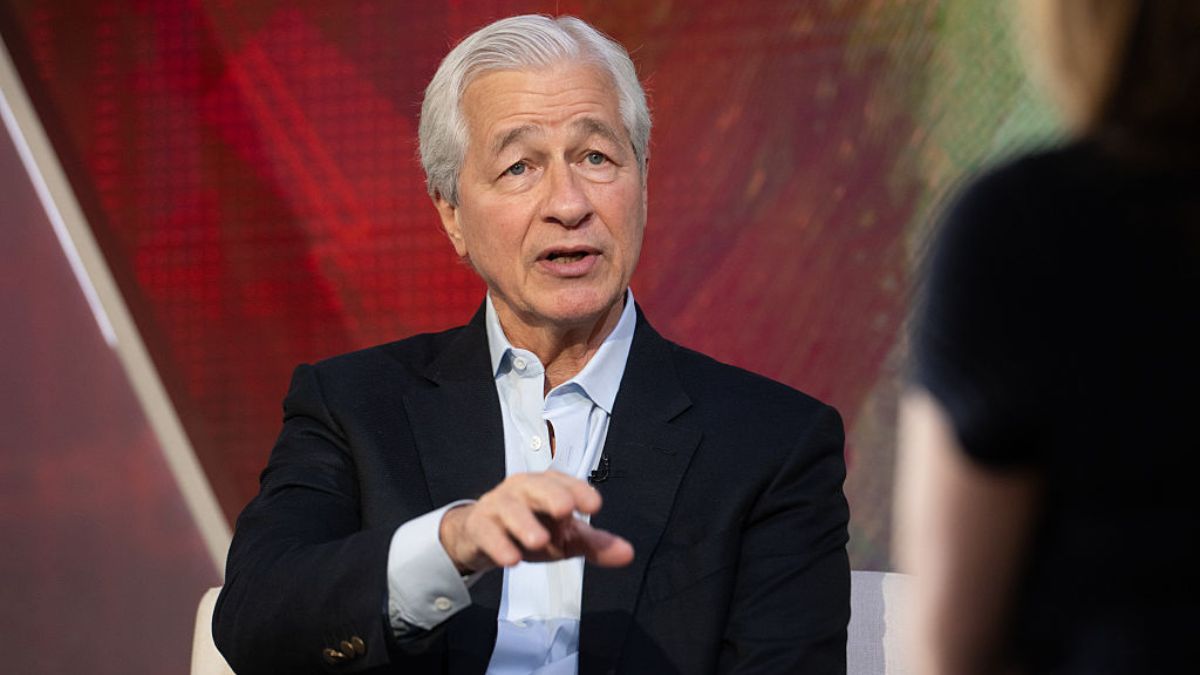
President Donald Trump’s ongoing threats to fire Federal Reserve Chair Jerome Powell have sparked concerns among financial leaders and politicians about the Federal Reserve’s independence. Trump has repeatedly shown frustration with Powell’s stance on interest rates, even reportedly showing House Republicans a draft letter for Powell’s removal.
According to Politico, the markets responded negatively to Trump’s latest threats, with a noticeable drop on Wednesday as investors processed the possibility of Powell’s removal, adding to concerns about Trump’s struggling economy, which is already limping along at a 15-year low. However, Trump later stepped back from these threats, following a pattern seen in previous situations.
JPMorgan Chase CEO Jamie Dimon addressed these concerns during a Tuesday earnings call with reporters. “The independence of the Fed is absolutely critical, and not just for the current Fed chairman, whom I respect, Jay Powell, but for the next Fed chairman,” Dimon stated. He warned that interfering with the Fed could lead to consequences opposite to what might be intended.
White House considers potential replacements as pressure mounts
The administration is reportedly considering several candidates to potentially replace Powell, including National Economic Council Director Kevin Hassett and former Fed board member Kevin Warsh, who are currently seen as frontrunners. Other candidates include Treasury Secretary Scott Bessent and Fed board member Chris Waller.
JPMorgan's Jamie Dimon warns Trump's tariffs pose major risks to the US economy, despite resilient profits and positive signs from deregulation and tax reform. https://t.co/Y0aVTmQQ2q pic.twitter.com/KfP3D3mU3u
— Finnian Drex (@finniandrex) July 17, 2025
Some of Trump’s allies are trying to convince him that the Fed’s independence could actually benefit his presidency. They argue that having a Fed chair who isn’t simply agreeing with everything could help prevent damaging inflation, which could harm Democrats in 2024. This argument is supported by historical examples, including the 1970s situation when President Richard Nixon’s pressure on then-Chair Arthur Burns to keep rates low led to higher inflation.
The White House continues to publicly support the Fed’s independence, with Kevin Hassett stating on NBC that “everybody at the White House understands the independence of the Fed is super important.” He emphasized that when central banks lose their independence, it negatively affects both the economy and markets.
The legal ability to remove Powell remains questionable, with recent Supreme Court hints suggesting they might protect Powell from such action, though Trump has shown a willingness to defy Supreme Court orders in other cases. Additionally, there are concerns about the financial instability that could result from removing the Fed chair simply for not lowering interest rates as quickly as the president wants.







